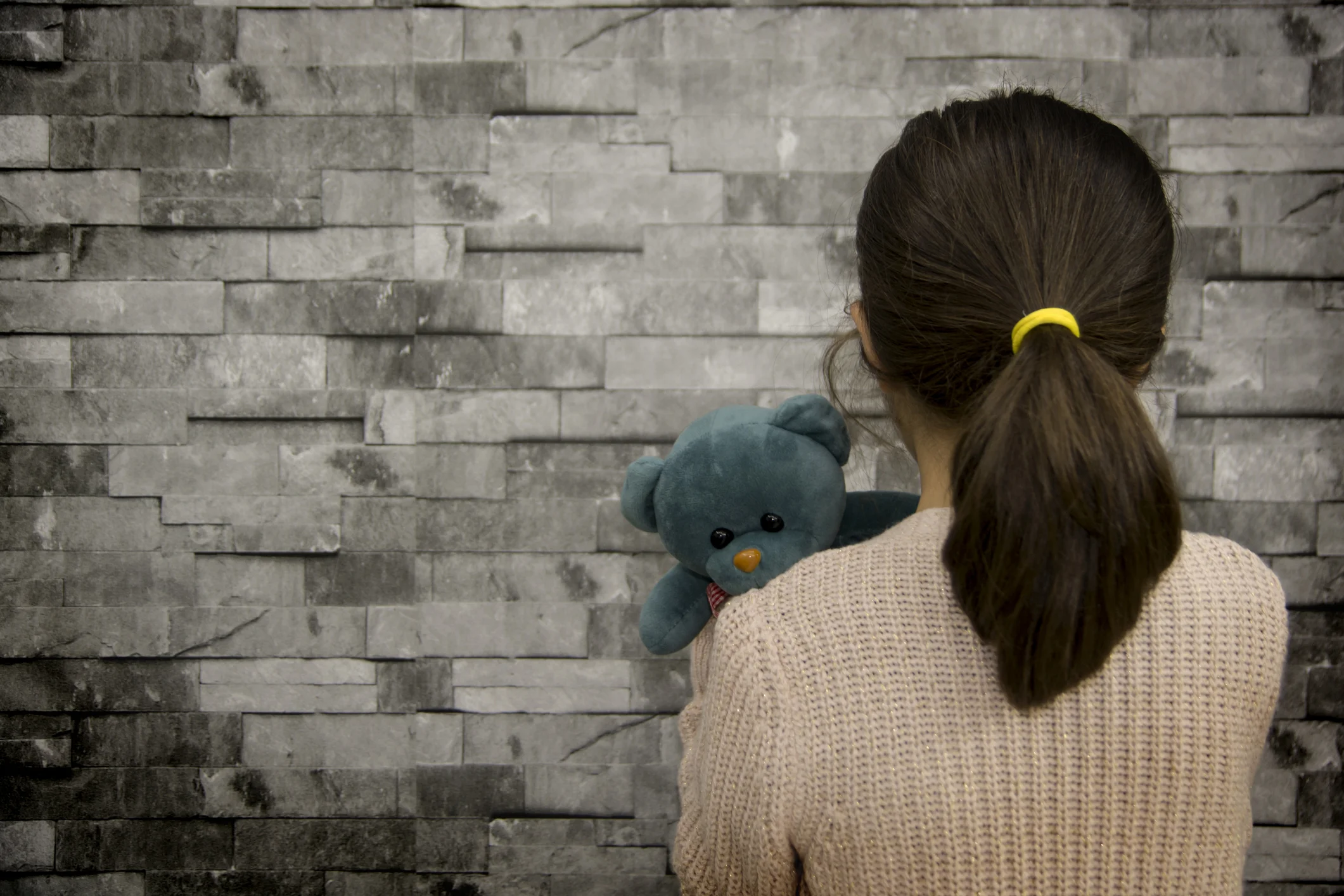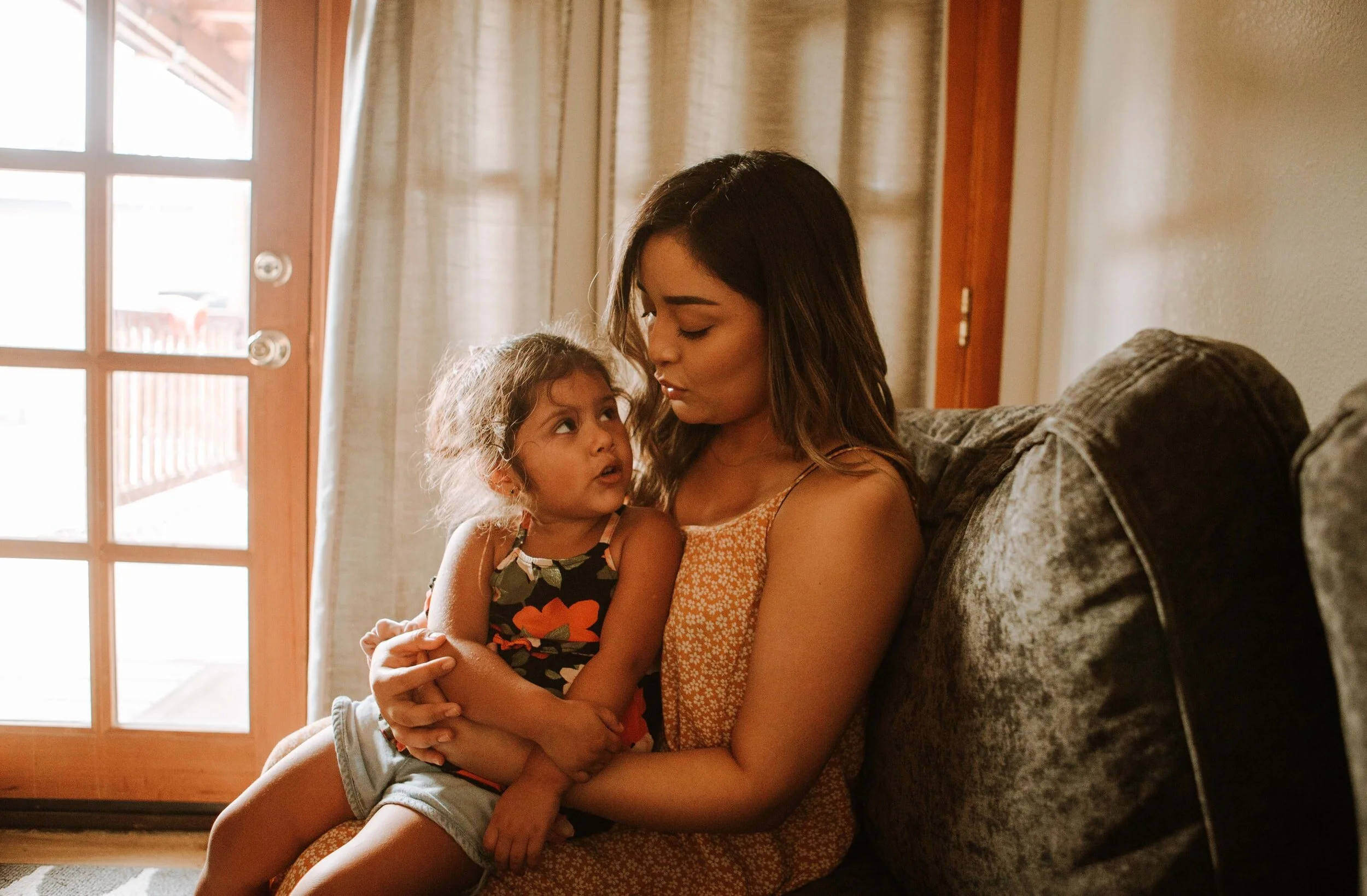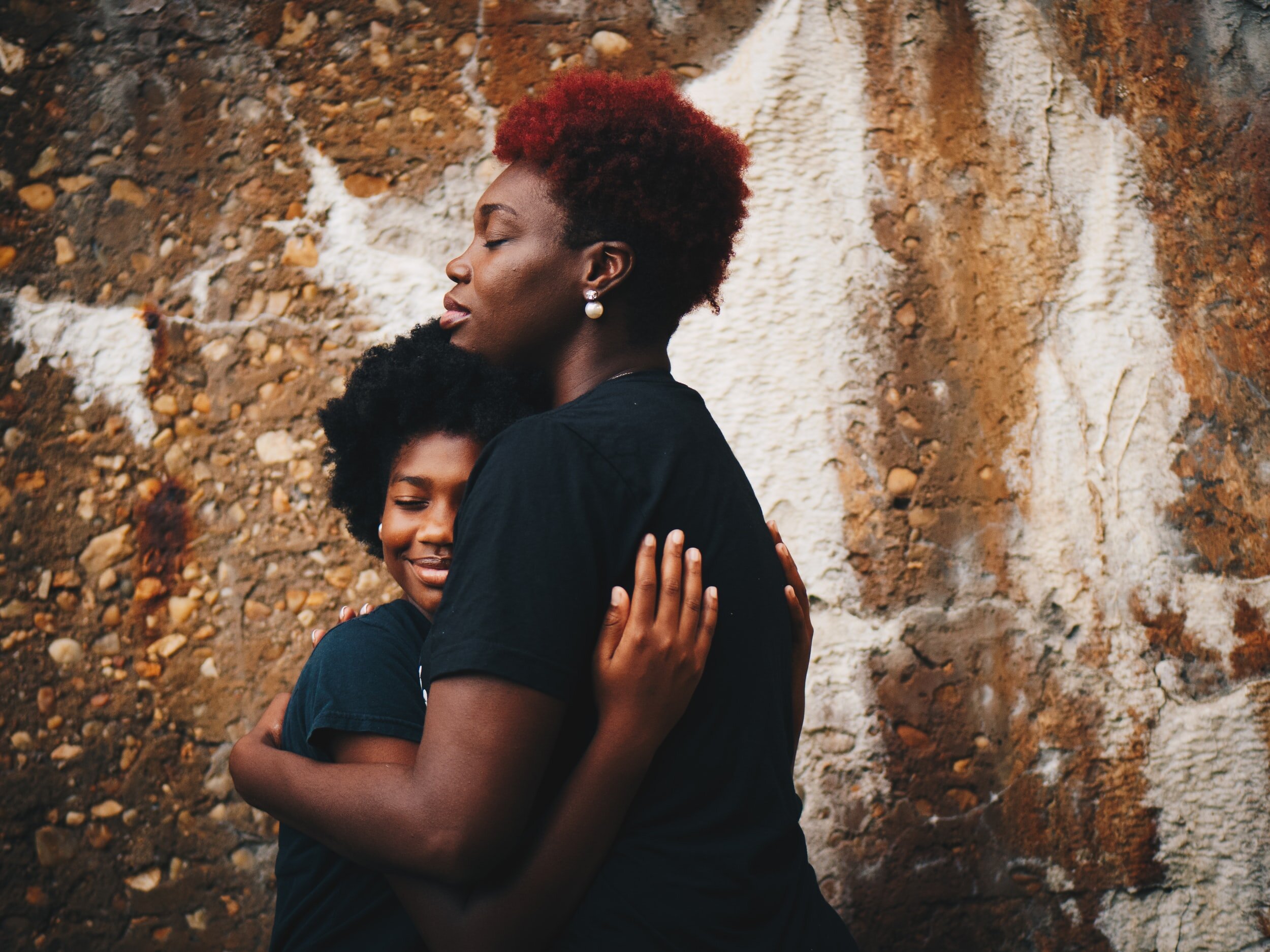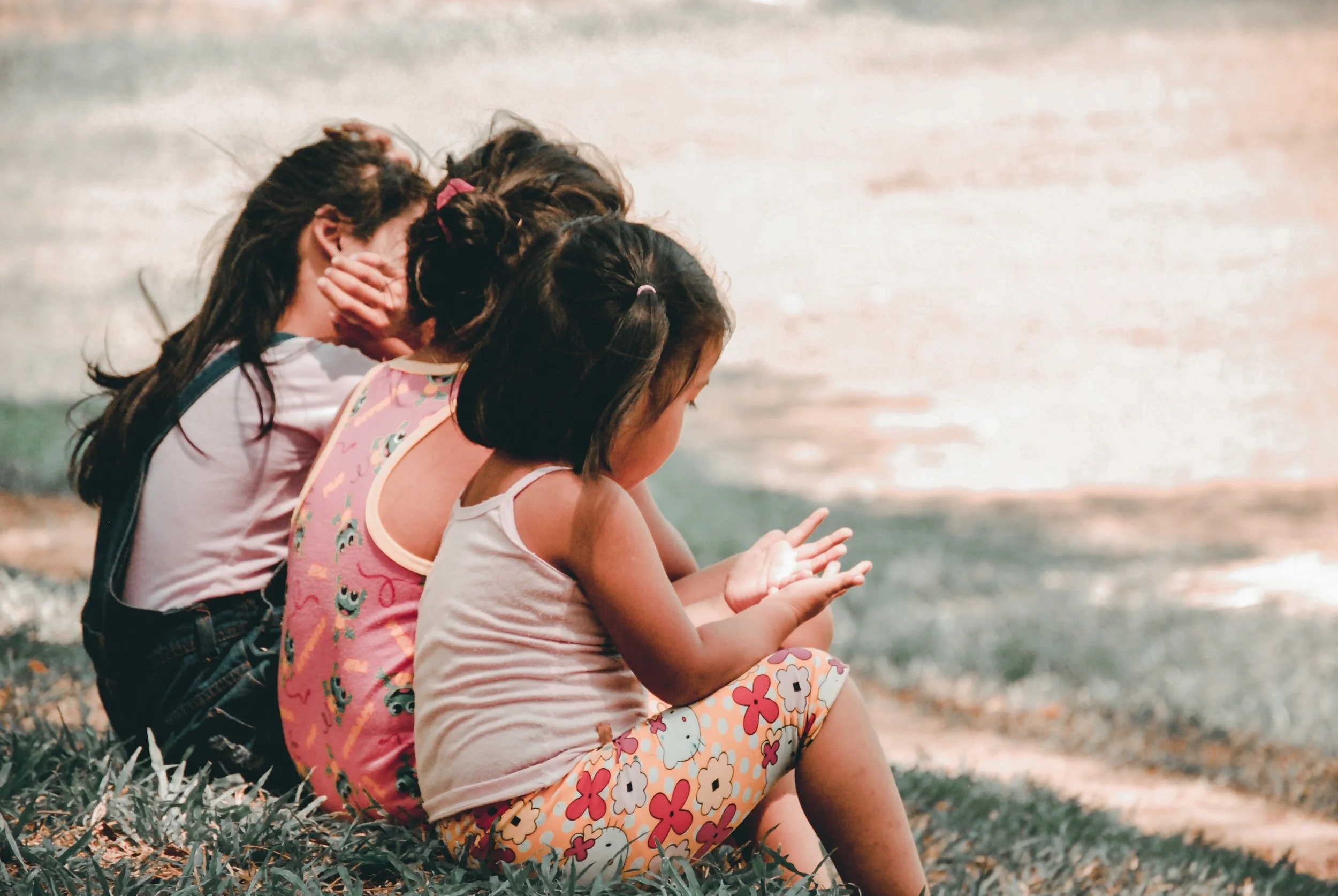Help for Childhood Trauma and PTSD
The word “childhood” often brings up images of a happy, innocent time, free from the worries of adult life. Whether or not you had a picture-perfect childhood, you want that experience for your child. You may be on this page because, despite your best efforts, trauma disrupted your child's carefree life. You’re looking for ways to help your child move past this awful time and get back to feeling the way they did before.
It can be hard for kids to bounce back from a trauma experience. This is especially true if your child struggles with anxiety or has dealt with trauma before. The good news is that even when trauma feels hopeless, it isn’t. We can’t erase what happened, but kids are resilient and can overcome trauma to live happy, healthy lives.
Childhood trauma is not a life sentence. I hope this page can be a resource to help you learn about the signs and symptoms of PTSD. You’ll learn how to help a child heal from trauma, and when to consider visiting a child trauma therapist.
What is Childhood Trauma?
Childhood trauma occurs when a situation overwhelms a child beyond her ability to cope. Anything that terrifies a child or puts them at risk of serious injury can cause trauma. When you think of trauma, you might imagine a crisis like war or a natural disaster. These situations are common causes of PTSD in adults. However, children usually experience trauma through a wide variety of more “everyday” experiences.
Common events that may be traumatic for children include:
Abuse (physical, verbal, emotional, or sexual)
Serious accidents or life-threatening illnesses
Witnessing domestic violence
Witnessing community violence
The sudden or violent death of a loved one
Separation from a parent or caregiver (ex. placement in foster care, or military deployment of a parent)
Having a family member with a substance use disorder
Natural disasters (such as fires, floods, or hurricanes)
Childhood trauma is more common than you might expect. Research shows almost half of American kids will have at least one trauma experience before they turn 18. One in three children will experience two or more types of trauma.
Does Childhood Trauma Always Lead to PTSD?
Not all children who experience trauma go on to develop mental health problems. Many children “bounce back” after a short period of time. They resume their lives without much trouble, and without ever needing to see a child trauma therapist.
However, other children may develop symptoms that continue long after the trauma has ended. As time passes, their struggles often seem to get worse instead of better. These symptoms may not appear until weeks or months after the trauma occurred. They can interfere with school, friendships, family relationships, and the child’s own happiness. In these situations, a child may be diagnosed with PTSD.
There are a few factors that put kids at higher risk of developing PTSD after a trauma. Kids who have anxiety or other mental health issues have a harder time coping. Trauma’s effects are cumulative, meaning the more trauma events a child experiences, the more vulnerable he becomes. Finally, kids whose trauma happened due to another person’s actions are at higher risk for PTSD. This means that kids who saw or experienced violence or abuse are more likely to be affected.
Signs of PTSD in Children
Children show trauma symptoms in their own way, which sometimes makes it hard to spot signs of PTSD. Kids may be misdiagnosed with ADHD, learning, or behavior problems before someone realizes that trauma is to blame. New, severe, and sudden problems like the ones below may be signs of PTSD in children:
Difficulty bonding and attaching to family members
Acting younger, losing potty training skills, or resuming temper tantrums
Difficulty falling or staying asleep, or frequent nightmares
Problems with learning or paying attention at school
Intense, quickly shifting moods that are difficult for the child to control
Complaints about physical problems, such as headaches or stomach aches
Risky or impulsive behavior
Symptoms of PTSD in Teens
Teenagers experience PTSD in similar ways to adults, but it can still be tough to spot their symptoms. After all, it’s not so unusual for any teen to have mood swings, struggle with low grades, or experiment with risky behavior.
If a teen’s trauma experience happened recently, they may have a hard time talking about it due to shame or fear. If it happened earlier in childhood, a teen’s symptoms may not appear to be connected to the original trauma at all.
Trauma symptoms fall into 4 main categories. It can be helpful to keep them in mind when trying to figure out if a teenager’s symptoms could be PTSD. The categories are:
Re-experiencing: The teen has repeated and upsetting memories of the trauma. This could mean recurring nightmares, unwanted thoughts, or flashbacks where it feels as if they’re living the trauma again.
Avoidance: Teens may avoid people, places, and things that remind them of their trauma. They may also avoid talking about what happened, or insist that they are feeling fine when asked.
Negative thoughts and mood: Many traumatized teens describe feeling empty or numb. Other teens struggle with depression, hopelessness, or intense anger. Teens with PTSD may lose interest in activities or friends they used to enjoy.
Arousal: Trauma activates the fight-or-flight response, so teens with PTSD are on high alert. This leads to anger, difficulty concentrating, or an exaggerated startle response when surprised.
It is important to know that teens with PTSD are more likely to have suicidal thoughts than adults. Teenagers also often cope with PTSD symptoms by abusing drugs and alcohol, or doing risky things. These activities can put teens of experiencing further trauma, so they must be taken seriously. If you or your teen is having thoughts of self-harm or suicide, please call 911 or contact the Crisis Text Line.
How to Help a Child Heal from Trauma
Parents have a huge impact on a child’s recovery from trauma. You can help your child heal by supporting her, being patient, and alleviating any guilt she may have. Here are some quick guidelines for how to respond if your child tells you about a trauma, or you believe a trauma may have happened:
Believe your child. If your child tells you something that leads you to think she may have been abused, take her claim seriously. If you suspect sexual abuse, you can get appropriate help by visiting a Child Advocacy Center.
Reassure your child that what happened was not his fault. Many children believe they somehow caused their trauma to happen, which leads to guilt and shame.
Try to keep routines consistent, even if life has become chaotic. A predictable schedule helps children feel safe, and can reduce emotional outbursts.
Be patient. Trauma symptoms take time to heal. Ongoing tantrums and sleep problems can be extremely difficult to deal with. However, criticizing a child for having these issues after a trauma only increases her sense of shame.
How a Child Trauma Therapist Can Help
A child trauma therapist helps children free themselves from constant bad memories. With help, children feel safe at home again. They sleep more soundly, and repair their relationships with family and caregivers. Through counseling, families learn coping skills to help deal with PTSD's roller coaster of emotions.
As a child trauma therapist myself, I tell families that the goal of therapy is not to forget about the trauma. Instead, we want to work through the trauma so it no longer feels like the defining moment of a kid’s life. Over time, the trauma becomes one short chapter in the much longer, more interesting story of a child’s life.
Child-Parent Psychotherapy and Trauma-Focused Cognitive Behavioral Therapy are especially helpful for treating childhood trauma. I am trained in both, as are many therapists around the country. You can learn more below:
Trauma-Focused Cognitive Behavioral Therapy (Tf-CBT)
TF-CBT is the most researched form of trauma therapy for children and teens under the age of 18. Studies show it is effective for a wide range of traumas such as child abuse, sexual assault, bereavement, and medical trauma.
In TF-CBT, kids learn how calm their body’s reactions to trauma using coping skills. They also talk about their trauma in a gradual, safe way to better understand the experience. This helps kids to feel less bothered by mood swings and flashbacks over time.
Child-parent Psychotherapy (CPP)
CPP is a form of child trauma therapy designed for kids under the age of 6, including preschoolers and toddlers. Little children have trouble telling us how they feel in words. Instead, they show us through their actions and play how the trauma has affected them.
This play-based therapy helps kids feel safe again by strengthening parent-child attachment. Kids learn that even though something scary happened, their parents can protect them. Parents also receive coaching to learn how to deal with tough behaviors related to childhood trauma.
Will Talking About the Trauma Make My Child Feel Worse?
Most forms of trauma therapy involve the child reviewing their trauma experience in some way. This can happen either nonverbally, through play or art, or verbally through talking and storytelling.
Parents often tell me they worry that digging up the past in this way will hurt their child. Could it bring up painful memories that are harmful to remember and think about? Research shows us that, actually, the opposite is true. Kids who talk about their trauma are less bothered by painful memories. Child trauma therapy helps kids feel in control and unashamed, so they can focus on the next chapter of their lives.
Sometimes, kids notice that their symptoms get a little worse when they first start talking about their trauma. This is a normal part of the process, and something to bring up with your child trauma therapist. Over time, most kids find that it gets easier and easier to talk and think about what happened.
Looking for a Child Trauma Therapist in Charlotte, NC?
Kids and families who are struggling with the aftereffects of trauma don’t have to go it alone. I work with children, preteens, and early teenagers at my child therapy office in Davidson, North Carolina. I help kids heal from trauma using TF-CBT and CPP. These two forms of therapy that were created just for kids, and they are proven to help with trauma symptoms.
I also provide online therapy to kids throughout our state, as well as families in New York and Florida. If you’re ready to take the next step, email me to make an appointment or give me a call at 704-981-2591.
Want to learn more about me before you schedule? Check out my bio or read some of my blog posts about helping children with trauma. Here are a few of my favorites:
What Are the Symptoms of PTSD in Children?
Therapy for Toddlers with PTSD: Child-Parent Psychotherapy
Help! My child won’t sleep through the night!
TF-CBT for Preschoolers: Help for Early Childhood Trauma
How to Help Grieving Children Through Christmas
More Home Resources to Help Traumatized Children Heal
The National Child Traumatic Stress Network has information for parents, teens, and children on different forms of trauma and therapies that are proven effective, including CPP and TF-CBT.
The National Children’s Advocacy Center has a database to help you find a location near you. If you believe your child may have been sexually abused, a trip to your local CAC should be your first step.
If you are in the Charlotte area, Pat’s Place is our local Child Advocacy Center. This child-friendly organization will investigate suspected abuse. It will also make sure a child is connected with a therapist, if one is needed.





